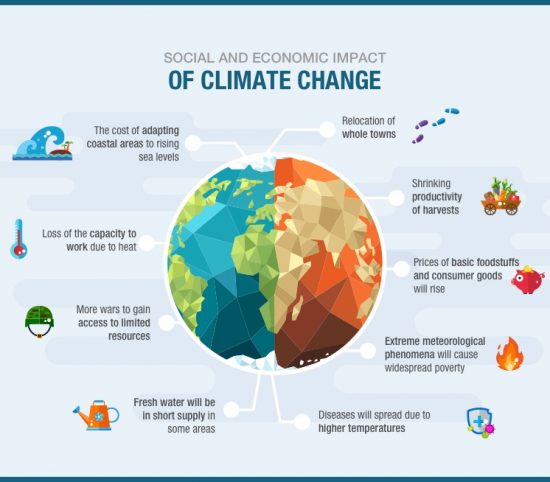Introduction
Global warming can be described as the scientific phenomenon that links the increase in the average temperatures of the earth to the trapped radiation on the surface of the earth such as the greenhouse. Such a phenomenon has been developing over the years and has hence become a threat to the life of humans and other living organisms due to the increase in greenhouse gases (Kevin, Fasullo, & Shepherd, 2015). In this essay, the researcher analyzed the causes and impacts of global warming.
Causes of Global Warming
Global warming occurs when the earth’s atmosphere is overheated due to trapped energy. Greenhouse gases including methane and carbon (IV) oxide are the contributors to global warming. Such gases tend to trap the solar radiations within the earth’s surface like it happens within a greenhouse which after sometime contributes to the increase in atmospheric temperatures. An increase in atmospheric temperatures leads to global warming. Human activities are the leading causes of global warming. For instance, natural gas and methane are released into the atmosphere during mining (John, 2015). Such gases are trapped in the atmosphere where they trap solar radiations and radiate it to the surface of the earth causing increased temperatures. Moreover, deforestation also causes global warming. Trees play an important role in the elimination of carbon (IV) oxide released into the environment as they use it in the process of photosynthesis (John, 2015). Therefore, deforestation tends to leave large quantities of carbon (IV) oxide in the environment which traps and radiates solar energy into the earth’s atmosphere leading to global warming.

Impacts of Global Warming
The greenhouse gases released into the environment increase the temperatures of the earth. Such increased temperatures contribute to the melting of polar ice caps which ultimately results in widespread flooding. Flooding tends to be detrimental to both economic and social progress as it results in the loss of lives and destruction of property (John, 2015). Moreover, global warming is attributed to numerous alterations to the earth’s ecological, biological and geological systems. Such changes are believed to cause several environmental risks to the health of humans such as the spread of contagious diseases across the world, ozone depletion, extreme weather, biodiversity destruction, pressure on food-production systems and increased perils like wild-land fires (Kevin, Fasullo, & Shepherd, 2015). Due to global warming, different species die off while most of the migratory patterns are destructed. Moreover, most animals face increased risks because global warming is associated with reduced nutrient content to support the plant life and this ultimately affects the entire food chain.
Conclusion
Global warming is mostly attributed to human activities. With the current trend of human activities including mining and manufacturing, the rate of global warming is likely to increase. Therefore, an increased number of catastrophes associated with global warming such as flooding are likely to persist unless actions are taken to reduce the emission of greenhouse gases into the atmosphere.
References
John, U. (2015). Climate change and society.Why the social sciences matter. London: Palgrave Macmillan.
Kevin, E. T., Fasullo, J. T., & Shepherd, T. G. (2015). Attribution of climate extreme event. Nature Climate Change 5.8, 725.
Peachy Essay essay services team offers a wide range of services including Environmental Studies Help:
– Environment Assignment Writing Services
– Environment Essay Writing Services
– Environment Dissertation Writing Services






